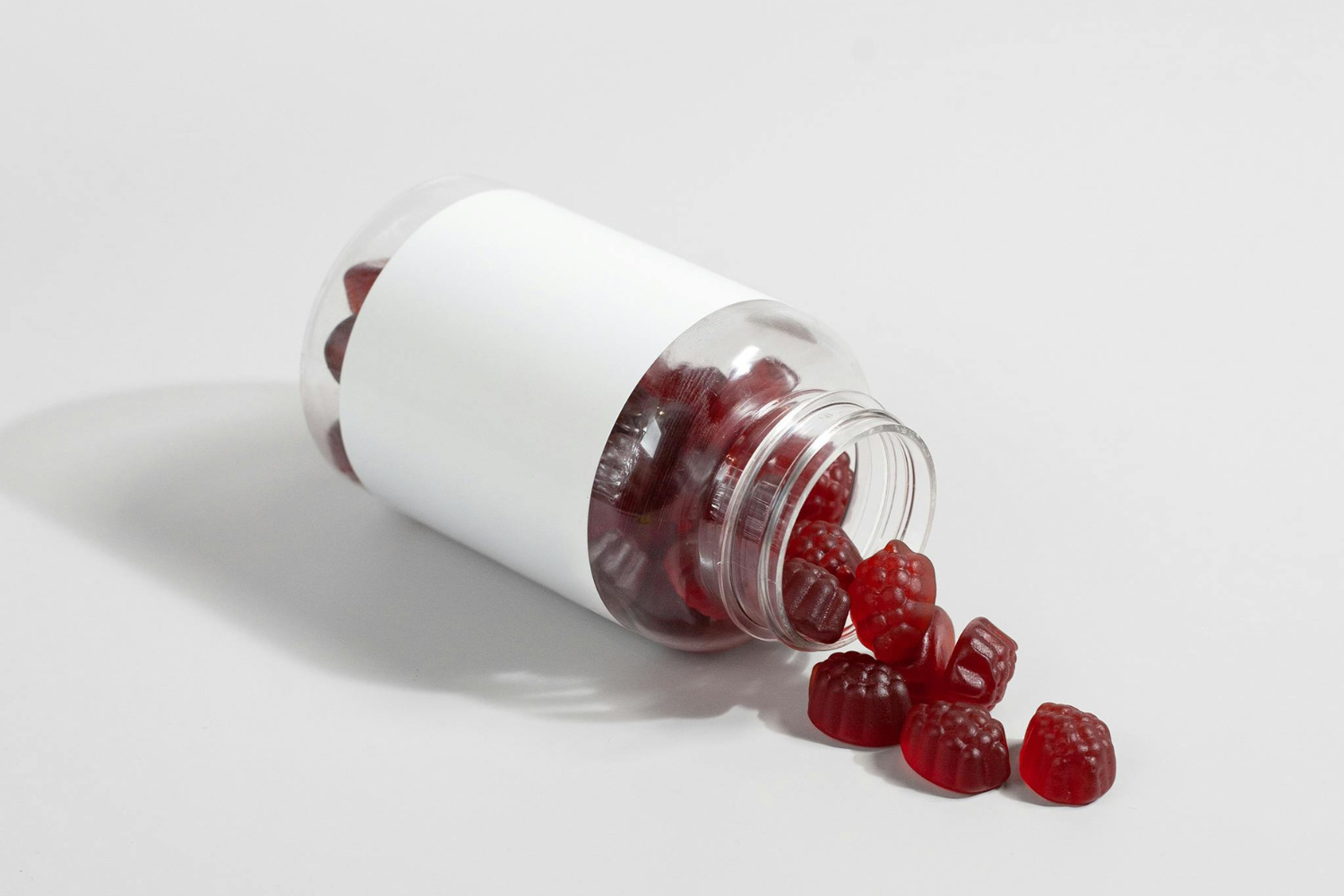Launching a nutrition brand requires choosing between custom formulation and private label products. Custom manufacturing offers complete control over ingredients, formulation, and branding, allowing businesses to create a proprietary formula tailored to their target audience.
Private label manufacturing, on the other hand, provides a cost-effective, faster way to enter the market using pre-existing formulations. Understanding the key differences, upfront costs, and market demand for each option helps determine the best fit for your brand vision. This guide explores both approaches, outlining their benefits and challenges and how they align with business goals, budget, and long-term growth.
Table of Contents
ToggleWhat Is Custom Formulation?
Custom formulation involves creating a unique supplement tailored to your brand’s vision and target audience. Unlike private label products, which use pre-existing formulas, this approach gives complete control over ingredients, dosages, and delivery formats.
Businesses work closely with a contract manufacturer to develop a proprietary formula that aligns perfectly with their brand identity and market demand. The research and development phase ensures the final product meets exact specifications, allowing for differentiation from established brands.

Benefits of Custom Formulation
Developing a custom product offers several advantages for businesses looking to establish a distinct identity in the supplement market:
- Full Control Over Ingredients & Quality – Every ingredient is selected based on sourcing, purity, and alignment with your brand vision.
- Competitive Differentiation – A proprietary formula creates a unique product, helping brands stand out and build authority.
- Scalability & Long-Term Brand Growth – Custom manufacturing supports higher profit margins and stronger customer trust over time.
- Custom Branding & Marketing – Unique formulations support targeted marketing efforts and branding differentiation.

Challenges of Custom Formulation
While custom formulation provides greater control and differentiation, it comes with challenges:
- Higher Upfront Costs – The development phase includes research, ingredient testing, and contract manufacturing setup.
- Longer Development Time – Creating a proprietary formula can take 6–12 months before reaching the market.
- Regulatory Compliance – Custom products must comply with FDA regulations, GMP standards, and other industry safety and quality requirements.
Best for Brands That Want
A proprietary formula ensures complete customization, allowing brands to create high-quality products that align with their vision. Businesses looking for long-term market positioning and a competitive edge benefit from investing in custom formulation.
Full control over sourcing, formulation, and packaging design supports a brand’s evolving needs. Custom manufacturing is ideal for those prioritizing unique branding, premium ingredients, and a fully customized product line.
What Is Private Label?
Private labeling means selling a pre-formulated supplement under your own brand name. Private label manufacturers produce these products, allowing businesses to customize only the label, packaging, and branding.
This option eliminates the need for research and development, making it a cost-effective and efficient way to enter the market. Private label products follow pre-existing formulations, simplifying compliance and speeding up the launch of a new product line.

Benefits of Private Label
Private label manufacturing offers several advantages for businesses looking for a quick and budget-friendly way to sell supplements:
- Faster Time to Market – Private label supplements can be launched in weeks instead of months.
- Lower Initial Investment – No need for research and development, ingredient sourcing, or product testing.
- Simplified Compliance & Manufacturing – The contract manufacturer handles formulation, production, and regulatory requirements.
- Lower Minimum Order Quantities (MOQs) – Easier to test products without committing to a large upfront investment.

Challenges of Private Label
While private label options provide a streamlined path to market, they also come with limitations:
- Limited Customization – The formula cannot be altered, making it harder to stand out from competitors selling the exact same product.
- Lower Profit Margins – Pre-existing formulations have fixed pricing and offer less exclusivity.
- Branding Constraints – Customization is limited to labels, packaging design, and marketing efforts, not the formulation itself.
Best for Brands That Want
A private label product is ideal for businesses looking for a fast, low-cost way to enter the supplement market. This approach allows brands to launch quickly without the high upfront costs of custom manufacturing.
Testing market demand before investing in a proprietary formula provides a low-risk strategy with fewer regulatory compliance challenges. Private label supplements provide a streamlined way for small businesses to introduce their own branded products to the market.
Key Differences Between Custom Formulation & Private Label
Choosing between custom formulation and private label depends on business goals, budget, and timeline. Custom manufacturing provides complete control over ingredients, dosages, and delivery formats, creating a unique product. Private label options use pre-existing formulations, reducing development time and allowing for faster market entry, though brands must ensure proper regulatory compliance. Both approaches have advantages and challenges, depending on the level of customization, investment, and regulatory requirements. The table below outlines the key differences:
| Feature | Custom Formulation | Private Label |
|---|---|---|
| Product Uniqueness | 100% unique | Shared with other brands |
| Time to Market | 6–12 months | 4–8 weeks |
| Upfront Costs | High (R&D, testing, manufacturing setup) | Low (pre-made formula) |
| Customization | Full control over ingredients, dosages, and format | Limited to branding and packaging |
| Compliance & Testing | Requires regulatory testing and approvals | Already FDA/GMP-compliant |
| Profit Potential | Higher margins due to exclusivity | Lower due to competition |
| Risk Level | Higher (requires market validation and investment) | Lower (easier to pivot if needed) |

How to Decide Between Custom Formulation & Private Label
The right choice depends on your business goals, budget, and long-term vision. Custom formulation works best for brands prioritizing uniqueness and control, while private label is ideal for those looking for a cost-effective and fast market entry.
Choose Custom Formulation If:
Custom formulation is the best option for businesses that want complete control over their product’s ingredients, branding, and long-term growth.
- You want a unique product that no one else offers.
- You have a long-term vision and plan to scale your brand.
- You’re willing to invest in research, testing, and compliance.
- You need specific ingredient sourcing, dosages, or delivery formats.
Choose Private Label If:
Private label supplements are an excellent choice for businesses looking for a budget-friendly, low-risk way to enter the market quickly.
- You want to launch quickly with minimal investment.
- You prefer a low-risk way to test the market.
- You don’t need customized ingredients or formulations.
- You want to focus on branding and marketing instead of R&D.
Hybrid Option: Private Label with Customization
Some manufacturers offer private label formulas with minor modifications, such as adjusting flavors, sweeteners, or ingredient dosages. This hybrid approach provides more flexibility than standard private label options while avoiding the high costs and long development time of full custom formulation.
Brands using this method can achieve some level of differentiation without going through an extensive research and development phase. While not completely unique, these customized private label products allow for a balance between affordability and branding control.
Pros & Cons of a Hybrid Approach
A hybrid model offers advantages and limitations for brands looking for a middle ground between private label and full custom manufacturing:
- Faster than custom formulation but more unique than standard private label.
- Lower cost than fully custom R&D, but with some brand differentiation.
- Still limited in formula changes, but better than generic private label.

Manufacturing & Compliance Considerations
Choosing the right manufacturer and ensuring regulatory compliance is critical to launching a high-quality supplement. The process differs for custom formulation and private label products, so working with an experienced contract manufacturer is essential.
Choosing the Right Manufacturer
For custom formulation, partnering with a GMP-certified, FDA-compliant manufacturer is essential. These manufacturers should offer research and development services, ingredient sourcing, and quality control to ensure the final product meets regulatory standards.
For private label, selecting a manufacturer that provides pre-tested, ready-made formulas with fast shipping and low minimum order quantities (MOQs) allows brands to enter the market quickly. A reliable private label manufacturer ensures product consistency and compliance while streamlining production.

Regulatory & Labeling Requirements
All supplements must comply with FDA, NSF, and cGMP standards to ensure product safety and quality. Compliance requirements vary depending on whether a product is a private label or custom formulated.
Reputable private label manufacturers ensure their products meet industry standards, but brands are responsible for regulatory compliance, including proper labeling. Custom formulas, however, require stability testing, ingredient validation, and labeling approvals to meet industry regulations before reaching the market.

Choosing the Best Path for Your Nutrition Brand
Custom formulation is ideal for brands prioritizing unique products, premium positioning, and long-term scalability. Private label manufacturing offers a faster, low-cost entry into the market with less risk and regulatory burden. A hybrid approach provides some customization while avoiding the full cost of custom research and development. The right option depends on your budget, timeline, and business goals, ensuring your brand aligns perfectly with market demand and growth potential.
Frequently Asked Questions
Which is more profitable, custom formulation or private label?
Custom formulations have higher long-term profit potential but require a larger upfront investment. Private label products have lower margins but allow faster entry and lower risk.
How long does it take to develop a custom supplement formula?
Typically 6–12 months, depending on R&D, testing, and regulatory approvals.
Can I switch from private label to custom formulation later?
Yes! Many brands start with private label to test demand and transition to custom once they gain traction.
Do private label supplements require FDA approval?
No, but they must comply with FDA regulations, including proper labeling and manufacturing under GMP standards.
What’s the best way to market a private label supplement?
Focus on branding, influencer partnerships, and digital marketing to strengthen market presence.
References
- National Institutes of Health. (1994). Dietary Supplement Health and Education Act of 1994. https://ods.od.nih.gov/About/DSHEA_Wording.aspx
- U.S. Food and Drug Administration. (2025). Current Good Manufacturing Practice (CGMP) Regulations. https://www.fda.gov/drugs/pharmaceutical-quality-resources/current-good-manufacturing-practice-cgmp-regulations
- U.S. Food and Drug Administration. (2024). Dietary Supplements. https://www.fda.gov/food/dietary-supplements
- U.S. Food and Drug Administration. (2005). Dietary Supplement Labeling Guide. https://www.fda.gov/food/dietary-supplements-guidance-documents-regulatory-information/dietary-supplement-labeling-guide
- U.S. Food and Drug Administration. (2022). FDA 101: Dietary Supplements. https://www.fda.gov/consumers/consumer-updates/fda-101-dietary-supplements




